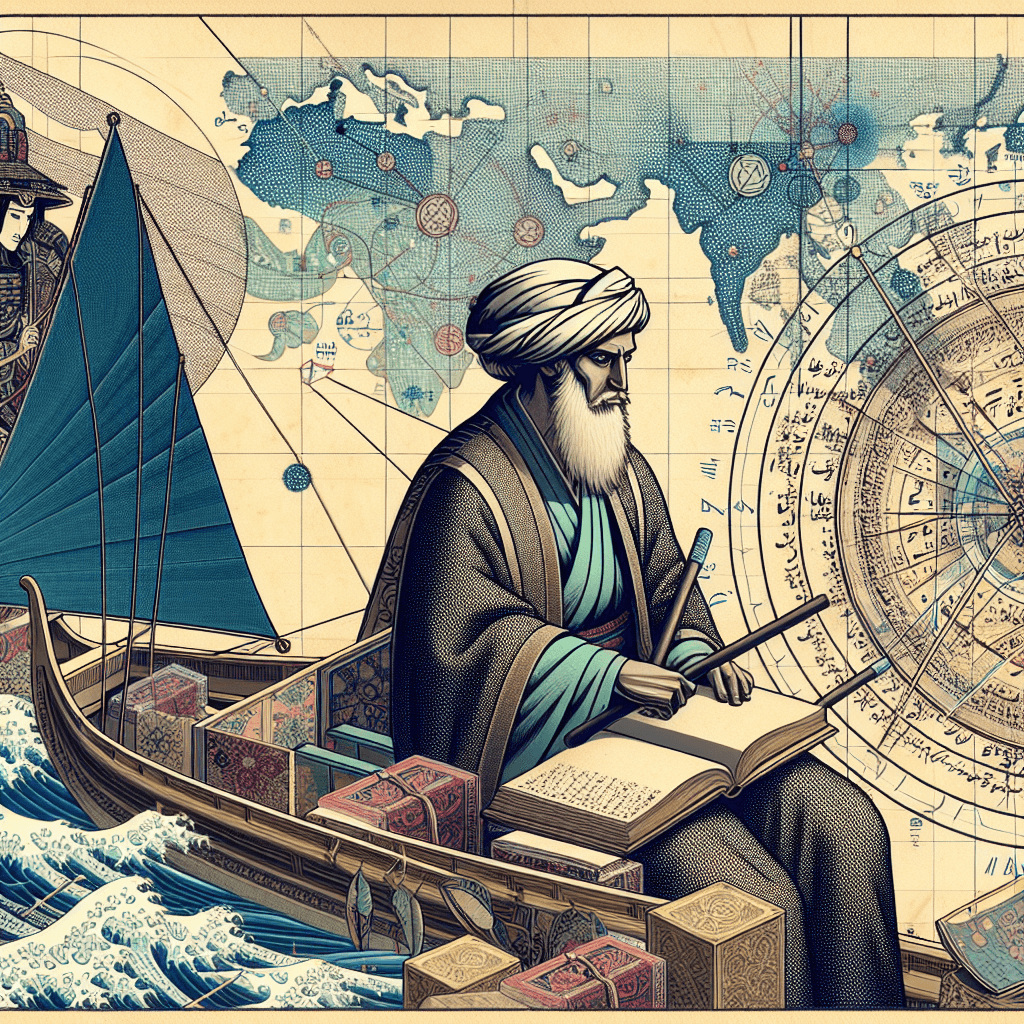

syndu | Aug. 30, 2024, 12:19 a.m.

Al-Khwarizmi, often hailed as the father of algebra, was a pioneering mathematician and astronomer whose contributions have left an indelible mark on the world of mathematics and science. His work in developing algebraic methods and algorithms laid the foundation for modern mathematics, and his contributions to astronomy and geography have had a lasting impact on our understanding of the cosmos. This blog post explores Al-Khwarizmi's legacy, highlighting his contributions to algebra and algorithms, and examining how his mathematical insights can inform modern space navigation.
Al-Khwarizmi's seminal work, "Kitab al-Jabr wa-l-Muqabala" (The Compendious Book on Calculation by Completion and Balancing), is considered one of the most important texts in the history of mathematics. In this book, Al-Khwarizmi systematically introduced the fundamental principles of algebra, providing methods for solving linear and quadratic equations. His approach to algebra was practical and methodical, emphasizing the importance of balancing equations and completing the square.
Al-Khwarizmi's contributions to algorithms are equally significant. The term "algorithm" itself is derived from his name, reflecting his pioneering work in developing systematic procedures for solving mathematical problems. His treatise on arithmetic, "Kitab al-Hisab al-Hindi" (The Book of Indian Calculation), introduced the Hindu-Arabic numeral system to the Islamic world and Europe, revolutionizing mathematical computation. Al-Khwarizmi's algorithms for arithmetic operations, such as addition, subtraction, multiplication, and division, laid the groundwork for modern computational methods.
Al-Khwarizmi made significant contributions to the field of astronomy, particularly through his work on astronomical tables. His "Zij al-Sindhind" (Astronomical Tables of Sind and Hind) provided detailed calculations of the positions of celestial bodies, including the sun, moon, and planets. These tables were based on both Indian and Greek astronomical knowledge, and they played a crucial role in advancing Islamic astronomy.
In addition to his work in mathematics and astronomy, Al-Khwarizmi made important contributions to geography. His book "Kitab Surat al-Ard" (The Image of the Earth) presented a detailed map of the known world, incorporating the geographical knowledge of his time. Al-Khwarizmi's work in geography helped to improve the accuracy of maps and navigation, providing valuable insights for explorers and travelers.
Al-Khwarizmi's algebraic methods have far-reaching implications for space navigation. The ability to solve complex equations is essential for calculating trajectories, orbital dynamics, and other navigational tasks. By applying Al-Khwarizmi's algebraic insights, modern navigators can develop more efficient and accurate methods for space exploration. For example, solving quadratic equations is crucial for determining the optimal launch windows and transfer orbits for spacecraft.
Al-Khwarizmi's algorithmic contributions are equally relevant to space navigation. Algorithms play a vital role in processing vast amounts of data collected by space missions, from sensor readings to telemetry data. By leveraging Al-Khwarizmi's systematic procedures, modern navigators can develop algorithms for real-time data analysis, trajectory optimization, and autonomous decision-making. These algorithms are essential for ensuring the success of space missions and enhancing the capabilities of spacecraft.
"By integrating Al-Khwarizmi's astronomical tables and geographical insights, modern navigators can enhance their ability to chart courses through the cosmos with precision."
Al-Khwarizmi's work in astronomy and geography provides valuable lessons for space navigation. Accurate timekeeping and celestial observations are essential for planning and executing space missions. By integrating Al-Khwarizmi's astronomical tables and geographical insights, modern navigators can enhance their ability to chart courses through the cosmos with precision. Additionally, his contributions to mapmaking and navigation can inform the development of advanced navigation systems for interplanetary travel.
Al-Khwarizmi's contributions to algebra, algorithms, astronomy, and geography create a rich tapestry of insights that continue to inspire and inform. His development of algebraic methods and algorithms, along with his contributions to astronomical observations and geographical knowledge, offer valuable lessons for modern space navigation. By integrating Al-Khwarizmi's legacy into their work, space navigators can explore the cosmos with both analytical precision and innovative vision, pushing the boundaries of human knowledge and understanding.
"Explore Al-Khwarizmi's contributions to algebra and algorithms. Discover how his work in mathematics, astronomy, and geography can guide modern space navigation."